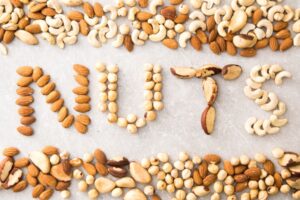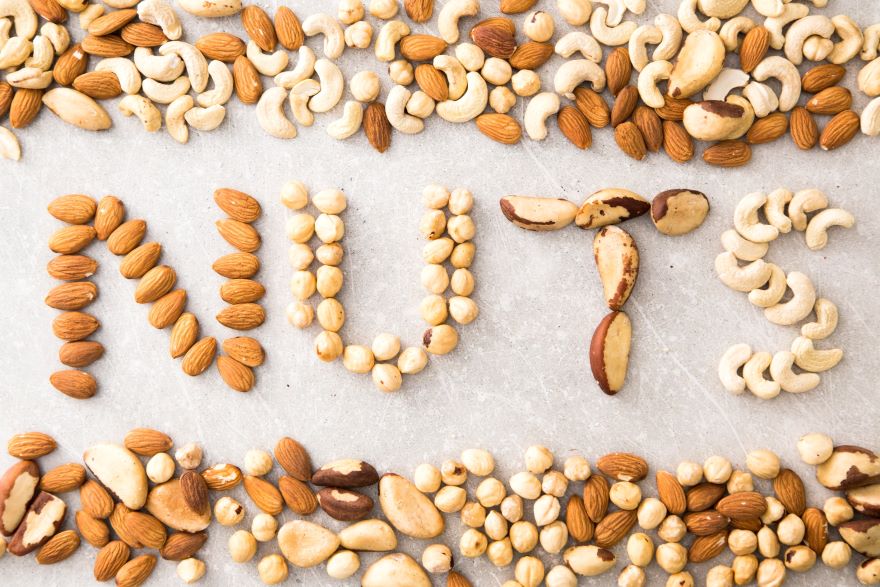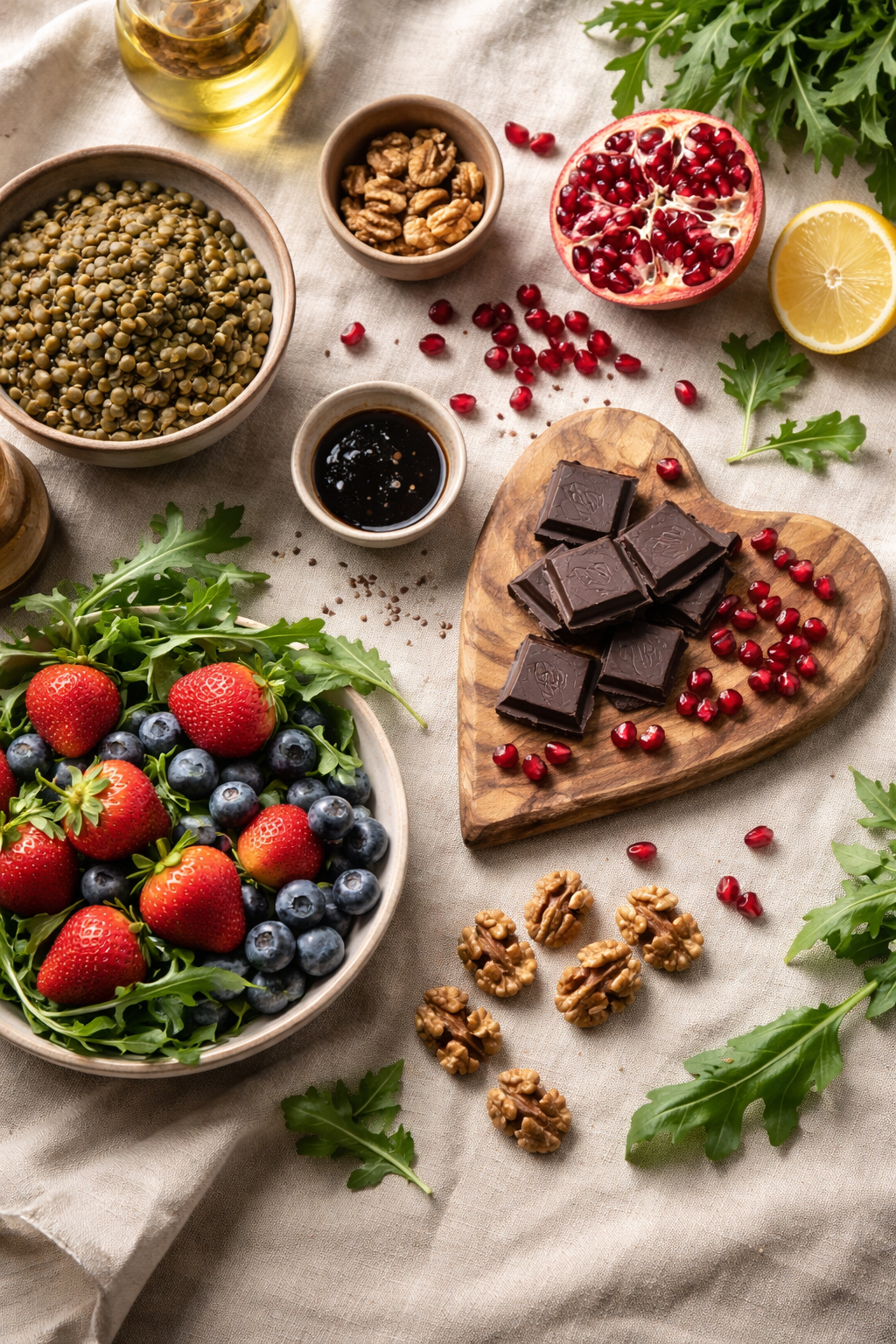Understanding what foods fit into a vegan diet is crucial for those following or considering this lifestyle. Veganism extends beyond just avoiding animal products like meat, eggs, and dairy. It encompasses a broader commitment to exclude all forms of animal exploitation and cruelty from one’s lifestyle, which includes diet. Nuts are plant-based foods, and they’re often touted for their health benefits, making them an excellent addition to any diet, including veganism.

Nuts, such as walnuts, almonds, and Brazil nuts, are not only vegan-friendly but are also packed with nutrients that can help vegans meet their nutritional needs. These include protein, healthy fats, particularly omega-3 fatty acids, vitamins, and minerals. When incorporating nuts into a vegan diet, it’s important to consider the variety and balance to ensure adequate nutrient intake. Nuts can be enjoyed raw, roasted, or as butter and are versatile in vegan recipes, from smoothies to salads.
Key Takeaways
- Nuts are vegan and nutritious, suitable for a plant-based diet.
- They provide essential nutrients that benefit vegan dietary patterns.
- Nuts are versatile in recipes and contribute to a balanced vegan diet.
Understanding Veganism

The vegan lifestyle is rooted in a commitment to exclude all forms of animal exploitation and cruelty, whether for food, clothing, or any other purpose. Here’s a deeper look into what veganism entails, how it’s often misunderstood, and the advantages it offers.
Definition and Principles
Veganism is a dietary and lifestyle choice that omits all animal products and by-products. This means I abstain from consuming meat, dairy, eggs, and honey. It’s not just about diet; veganism extends to my rejection of animal-derived materials, products tested on animals, and places that exploit animals for entertainment. I ensure that my actions align with the key principle of minimizing harm to all living creatures.
Common Myths Debunked
- Myth: All vegans are instantly healthier.
- Truth: Vegan diets can be healthier if they are well-planned and include a variety of whole foods, but like any diet, they require balance and possibly supplementation, especially for nutrients like B12.
- Myth: Veganism doesn’t make a difference to the planet.
- Truth: Evidence suggests that a shift towards plant-based diets can reduce greenhouse emissions, deforestation, and water use.
Benefits of a Vegan Diet
When I follow a vegan diet properly, my intake of key nutrients, such as dietary fiber, antioxidants, and certain vitamins, can increase. I am likely to ingest lower levels of saturated fats and cholesterol, which are associated with animal products. My vegan diet can contribute to a lower risk of health issues like heart disease, high blood pressure, diabetes, and certain types of cancer. Additionally, reducing my consumption of animal products can have a positive environmental impact, as it typically requires less energy and resources than producing meat and dairy.
Nuts and Veganism
When evaluating nuts in the context of a vegan diet, it is important to consider their source, potential for cross-contamination, and any additional non-plant-based ingredients they may contain.
Are All Nuts Vegan-Friendly?
In their pure, unprocessed form, all nuts are vegan-friendly. My diet includes a variety of nuts since they provide essential nutrients and are wholly plant-derived. Websites like Thyme to Go Vegan Nutrition Services highlight popular choices such as walnuts, Brazil nuts, and almonds.
Cross-Contamination Concerns
However, cross-contamination is a potential issue, especially for nuts processed or packaged in facilities that also handle dairy or other animal products. It’s imperative for me to check labels or contact manufacturers if I want to ensure the nuts haven’t been contaminated with non-vegan substances.
Honey Roasted and Other Non-Vegan Nuts
I must be wary of nuts that have been processed or flavored with non-vegan ingredients. For instance, honey roasted nuts are not vegan due to the use of honey. Some brands might use gelatin (derived from animals) in flavor coatings, so it’s crucial for me to read ingredient lists carefully.
Incorporating Nuts into Your Vegan Diet
Nuts are a versatile and vital part of vegan nutrition, providing both a rich source of protein and various options for culinary creativity.
Nuts as Protein Sources
I consider nuts to be a cornerstone for protein in a vegan diet. For instance, one ounce of almonds provides approximately 6 grams of protein, making them an excellent snack or addition to meals. Likewise, just a handful of pistachios can contribute to muscle growth and improve satiety between meals.
Creative Ways to Include Nuts
I find nuts to be incredibly flexible in meal planning. They can be chopped and added into salads or blended into smoothies for a nutty flavor and nutritional boost. Additionally, nuts like pine nuts can be toasted and sprinkled over pasta dishes, providing a satisfying crunch. For baking, I like to mix in walnuts or pecans to add texture to cakes and bread.
Nut Butters and Spreads
Nut butters, such as those made from almonds and cashews, are a staple in my kitchen. They’re not only packed with protein but also provide healthy fats. I spread them on toast, use them in sauces and dressings, or incorporate them into vegan desserts for added richness.
Health Implications of Eating Nuts

Nuts are a substantial component of my diet, providing essential nutrients, but it’s crucial to be mindful of potential allergies and proper serving sizes to reap the full benefits.
Nutritional Value of Nuts
Nuts are powerhouses of nutrition. They are densely packed with proteins, healthy fats, and fiber. For instance, walnuts are prized for their high omega-3 fatty acid content which supports heart health. Additionally, Brazil nuts are an exceptional source of selenium, which can support thyroid function. However, nutritional content varies among different nuts, making it beneficial to consume a variety.
Allergies and Intolerances
I cannot overlook the fact that nuts can pose allergy risks. Tree nuts are among the most common food allergens and can trigger severe reactions, including anaphylaxis. Thus, individuals with nut allergies must avoid them entirely. It’s also important to be aware that cross-contamination can occur in facilities that process multiple types of nuts.
The Right Portion Sizes
Nuts are high in calories, and portion control is key. I typically adhere to the recommended serving size of about a handful — equivalent to 1 ounce or 28 grams — to ensure I’m not overindulging. This quantity allows me to benefit from nuts’ nutrients while maintaining a balanced diet. It’s easy to consume nuts mindlessly, so measuring out servings in advance can be a helpful practice.
Environmental and Ethical Considerations

In my exploration of veganism, it’s clear that the environmental and ethical implications are significant. Nut consumption, often a staple in vegan diets, impacts these areas distinctively.
Sustainable Nut Farming
When assessing nuts for their eco-friendliness, I focus on how their cultivation affects the environment. For example, pine nuts, when grown without pesticides, generally have a minimal detrimental impact on land, soil, air, water, and local wildlife. Sustainable farming practices include water conservation, soil health, and biodiversity, which are essential for maintaining ecological balance. It’s crucial to support farming practices that prioritize the planet’s health to ensure the nuts I consume align with vegan environmental ethics.
Fair Trade Nuts
Another critical aspect I consider is the socioeconomic impact of nut production. Fair Trade certification aims to ensure that the farmers and workers involved in the production of nuts are treated ethically and paid fairly. By choosing Fair Trade nuts, I support ethical trade practices that promote better working conditions and economic empowerment for workers. This aligns with the vegan ethos of causing no harm, extending to the human element involved in the production process.
Shopping for Nuts as a Vegan

When shopping for nuts, I ensure that they are free of animal-derived ingredients and cross-contamination. I focus on reading labels carefully and choosing certified brands.
Reading Labels and Ingredients
I always scrutinize product labels to check for non-vegan ingredients such as honey or casein, which can occasionally be found in flavored nuts. I make it a habit to look for plain nuts or those flavored with plant-based ingredients.
Trusted Brands and Certifications
I prefer purchasing nuts from brands that are explicitly labeled vegan or carry a certification like the Non-GMO Project. This way, I’m assured that my choice aligns with vegan standards. Brands such as Food to Live offer a range of vegan nuts, ensuring transparency and trust.
Recipes and Cooking Tips

In this section, I’ll provide practical advice on how to integrate nuts into vegan cuisine, from homemade nut milks to their use in both sweet and savory recipes.
DIY Nut Milk and Creams
To create homemade nut milk, I typically soak one cup of nuts overnight, then blend with three to four cups of water and strain. The milk can be sweetened or flavored if desired. Almond and cashew work well for creamy textures.
Nuts in Vegan Baking
Walnuts and pecans can be added to banana bread or cookies for an extra crunch and a boost of omega-3s. Nuts like almonds can also be ground into flour for gluten-free baking, providing moisture and a rich texture to cakes and pastries.
Savory Dishes with Nuts
In savory dishes, I love using nuts for added texture and nutrition. They can be sprinkled over salads, blended into pesto, or used as a meat substitute, like in walnut-based taco ‘meat’. Pine nuts and almonds add a delightful crunch to top tomato-sauced pasta, whereas cashews are ideal for creating creamy sauces.
Contributing to the Vegan Community

As a vegan, I understand that my food choices have a wider impact than just my health. By incorporating a variety of nuts into my diet, I am not only nourishing my body but also supporting sustainable agriculture. Nuts, by nature, require less water and land compared to animal farming, making them environmentally friendly. I focus on purchasing nuts from brands that uphold ethical farming practices thus aiding in economically supporting vegan-friendly businesses.
My choice to consume nuts as part of my vegan diet also sets a positive example for peers interested in plant-based diets. I often share recipes and nutritional information, for instance highlighting that walnuts are excellent for omega-3 fatty acids, to encourage others to understand the health benefits and versatility of nuts.
| Nut Type | Key Nutrient |
|---|---|
| Almonds | Vitamin E |
| Cashews | Magnesium |
| Brazil Nuts | Selenium |
By choosing various nuts, I get different dietary benefits, ranging from heart health to muscle repair. I make a conscious decision to integrate different kinds of nutrient-dense nuts into my meals.
In summary, as part of the vegan community, I advocate for and contribute to a movement that is compassionate towards animals, environmentally sustainable, and beneficial for our health. My actions, including promoting the consumption of nuts, are small steps towards a larger goal of a more sustainable and ethical world.
Conclusion

In summary, nuts are a plant-based food, making them a suitable and valuable addition to vegan diets. Their inclusion is not only for the nutritional benefits they confer—such as being rich sources of healthy fats, proteins, vitamins, and minerals—but also for their versatility in vegan cooking and baking.
Here’s a quick breakdown of their benefits:
- Healthy Fats: Nuts like pecans and walnuts are particularly high in beneficial fats.
- Protein Content: They provide essential amino acids, with certain types like almonds and pistachios being good protein sources.
- Vitamins & Minerals: Nuts are packed with vitamins such as vitamin E, and minerals like magnesium and selenium.
In my culinary experiences and nutritional research, I’ve found that nuts can enhance a variety of dishes, lending texture and flavor to vegan cheeses, sauces, and desserts. Moreover, they are a convenient, satiating snack that can be enjoyed raw, roasted, or as part of a mix with other foods like dried fruits.
For individuals following a vegan diet, nuts represent a powerful nutrition source and a culinary staple. Whether enjoyed as a snack or used as a recipe ingredient, they are undeniably vegan and immensely beneficial to include in one’s diet.
Frequently Asked Questions
In this section, I’ll answer some common queries regarding the inclusion of nuts in vegan diets, discussing their role and variety within plant-based nutrition.
What distinguishes vegan and vegetarian diets when it comes to nuts?
Nuts are a staple in both vegan and vegetarian diets, providing essential nutrients. The key difference lies in the avoidance of all animal products by vegans, while vegetarians may consume dairy and eggs.
Can nuts be included in a complete list of plant-based foods?
Absolutely, nuts are a crucial part of a plant-based diet due to their high protein content and healthy fats. They complement other plant foods, helping to create a balanced diet.
What variety of nuts are acceptable for a strict vegan diet?
Any nut is appropriate for a strict vegan diet as long as it is not processed with animal-derived substances. This includes all natural walnuts, almonds, cashews, and more.
How do almonds fit within the vegan food spectrum?
Almonds are an excellent source of protein and beneficial fats, making them a great choice for those following a vegan lifestyle. They’re versatile and can be used in a variety of vegan recipes.
In what ways can nuts be integrated into vegan breakfast options?
Nuts can be easily added to breakfast cereals, vegan yogurt, smoothies, or used in homemade granola for a nutritious start to the day.
What are some vegan snack options that include nuts?
Nuts work well in snack mixes with dried fruits, they can be made into nut butters for dipping, or simply enjoyed on their own for a quick, healthy snack.

*We may earn a commission for purchases made using our links. Please see our disclosure to learn more.



